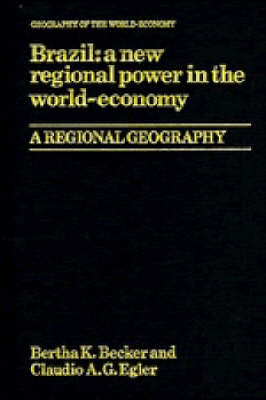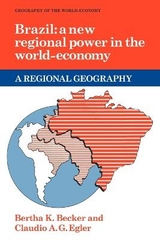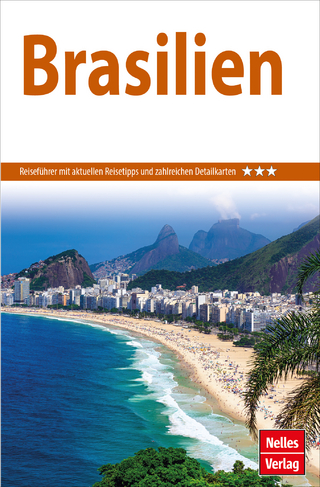
Brazil
A New Regional Power in the World Economy
Seiten
1992
Cambridge University Press (Verlag)
978-0-521-37008-0 (ISBN)
Cambridge University Press (Verlag)
978-0-521-37008-0 (ISBN)
- Titel erscheint in neuer Auflage
- Artikel merken
Zu diesem Artikel existiert eine Nachauflage
Becker and Egler examine and review the process of Brazil's entry into the capitalist world-economy. They trace this development from the country's origins as a Portuguese colony to its status as a regional power in Latin America and the eighth-largest world economy.
Brazil is a country of immense diversity. It continental dimensions contain the most important industrial complex of the South as well as the largest rainforest reserve in the world, the Amazon. The 1970s witnessed a period of immense economic growth in Brazil, yet more than half the population live in poverty. In this textbook Professors Becker and Egler examine these contemporary dilemmas by exploring the process of Brazil's entry into the capitalist world-economy. They trace this development from the country's origins as a Portuguese colony to its status as a regional power in Latin America and the eighth-largest world economy. Becker and Egler combine geography, history, economics and political science in a comprehensive view of Brazil's development and this innovative and compelling approach enables comparative analysis with other countries. Brazil: A New Regional Power in the World Economy will be widely read by students and specialists of geography, Latin American history, political science, development economics, urban and regional planning and public administration. It will also be an invaluable reference source for journalists, government analysts and policy-makers in international development agencies.
Brazil is a country of immense diversity. It continental dimensions contain the most important industrial complex of the South as well as the largest rainforest reserve in the world, the Amazon. The 1970s witnessed a period of immense economic growth in Brazil, yet more than half the population live in poverty. In this textbook Professors Becker and Egler examine these contemporary dilemmas by exploring the process of Brazil's entry into the capitalist world-economy. They trace this development from the country's origins as a Portuguese colony to its status as a regional power in Latin America and the eighth-largest world economy. Becker and Egler combine geography, history, economics and political science in a comprehensive view of Brazil's development and this innovative and compelling approach enables comparative analysis with other countries. Brazil: A New Regional Power in the World Economy will be widely read by students and specialists of geography, Latin American history, political science, development economics, urban and regional planning and public administration. It will also be an invaluable reference source for journalists, government analysts and policy-makers in international development agencies.
List of figures; List of tables; Preface; 1. The ambivalence of an emerging power; 2. The incorporation of Brazil into the world-economy: from colony to national industrialisation; 3. The world-economy and Brazil's regions; 4. The rise of Brazil as a regional power in the world-economy; 5. The legacy of conservative modernisation and territorial restructuring; 6. Crisis and dilemmas of the regional power; 7. Conclusion; Bibliography; Index.
| Erscheint lt. Verlag | 28.5.1992 |
|---|---|
| Reihe/Serie | Geography of the World-Economy |
| Verlagsort | Cambridge |
| Sprache | englisch |
| Maße | 156 x 237 mm |
| Gewicht | 414 g |
| Themenwelt | Reiseführer ► Südamerika ► Brasilien |
| Wirtschaft ► Volkswirtschaftslehre ► Makroökonomie | |
| ISBN-10 | 0-521-37008-6 / 0521370086 |
| ISBN-13 | 978-0-521-37008-0 / 9780521370080 |
| Zustand | Neuware |
| Haben Sie eine Frage zum Produkt? |
Mehr entdecken
aus dem Bereich
aus dem Bereich



